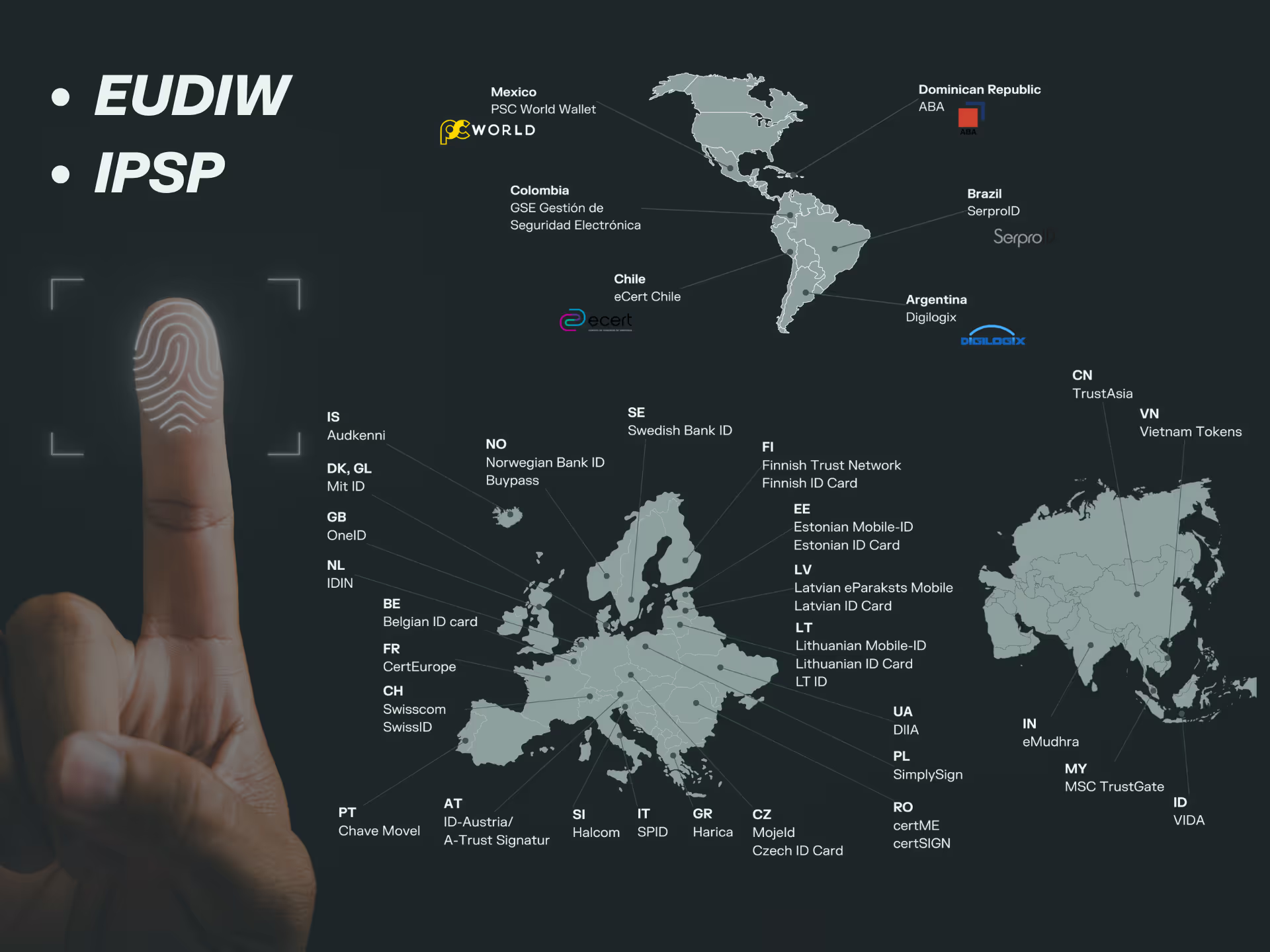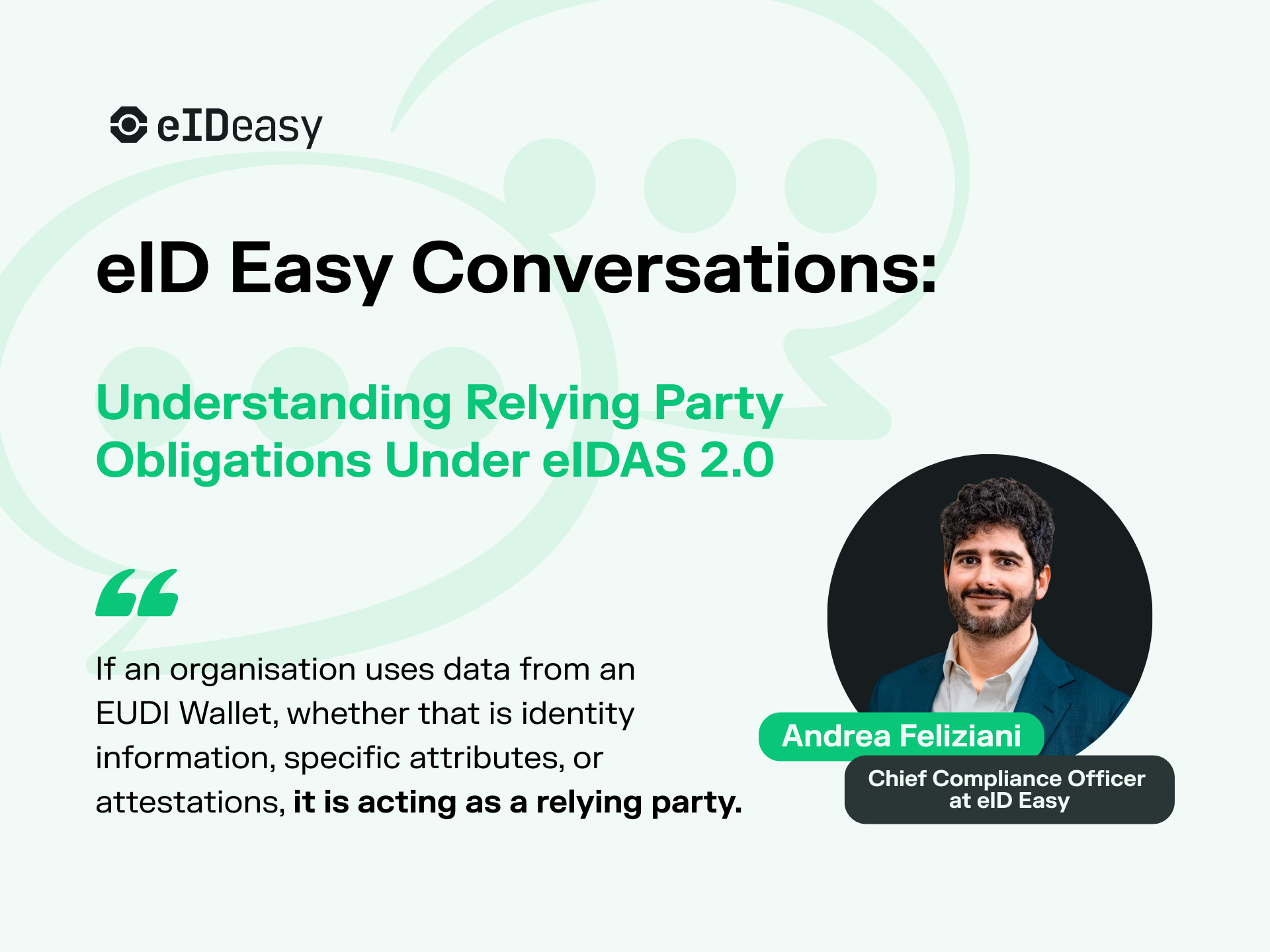We are pleased to share the latest developments of the eID Easy API Platform below.
*Please note that definitions of terms used in the newsletter can be found at the end of the document.
Latest Focus
While the EUDIW launch is still more than a year away, many countries in Europe already have prototype wallets ready.
→ These wallets will soon be available in the eID Easy marketplace.
At the same time, the USA and several other countries have digital identity wallets already in production.
→ eID Easy will enable customers to use these as well.
As adoption of digital identity apps rises rapidly, we’re seeing a strong shift toward using verified identity information to sign documents securely, unlike traditional email validation-based signatures.
To support this transition, eID Easy is working with a wide range of TSPs and CAs, acting as an Identity Proofing Service Provider ('IPSP') to enable low-friction, low-cost one-shot document signing certificate issuance.
The eID Easy API already supports multiple integration options for nearly every use case. We follow key international standards for eID and eSignature—such as OIDC, CSC API, and others. As part of our ongoing improvements, we're ensuring all supported methods are upgraded to the latest standards wherever possible.
Recent Releases
New signature solutions and features recently introduced:
- OIDC Improvements – Private Key JWT authentication and other FAPI specification enhancements
- More Flexible Webhook Configurations
- Increased compliance with ETSI TS 119 461 Identity Proofing specification
Upcoming Updates (Short Term: 1–2 Months)
- Google Wallet and U.S. mobile driver’s license – Online identity verification
- Bulgaria – Borica B-Trust app QES
- IgniSign – QES with onboarding ease in many countries
- Upgraded JavaScript UI Components – Improved functionality and user experience
- OIDC Protocol – Extended to all eID identity verification methods for enhanced security and compatibility
- Uruguay – TuID local signatures
- Argentina – Digilogix local signatures
- Improved selection of Nordic eID-based one-shot AdES solutions
Longer-Term Plans (Evaluation Stage, No ETA)
- Turkey – USB token and cloud signature integration
- Italy – SPID eID support
- Identity and Signature Configuration Updates – Enhanced method ordering and filtering
Key Features Previously Released
- Batch Signatures – Sign multiple documents with a single confirmation
- eSeals – Automated company signatures without user interaction
- Adacom – One-shot QES without any app or user account
- Mexico – NOM151-compliant signatures
- Austria – A-Trust powered ID-Austria: supports hash and batch signing
- Freja eID – Compatible with passports from 167 countries
- LT ID – Newly introduced Lithuanian government eID and QES app
- Nordic Countries – Support for hash-based XML signatures without certificates
Definitions used in this newsletter:
Batch Signatures – Allows multiple documents to be signed in a single session with one confirmation.
CSC API (Cloud Signature Consortium API) – An international standard for implementing cloud-based digital signatures.
eSeals – Automated company signatures applied without human interaction from a signer.
ETSI TS 119 461 – A European standard defining identity proofing requirements for remote digital signature creation.
EUDIW (European Digital Identity Wallet) – An upcoming EU initiative that will allow citizens to store and use verified identity data and credentials securely through a standardized digital wallet.
IPSP (Identity and Signature Provider) – An entity that facilitates identity verification and certificate issuance in cooperation with TSPs and CAs.
JavaScript UI Components – Front-end components integrated into web applications for electronic signing, recently upgraded for better performance.
OIDC (OpenID Connect) – An identity protocol used to authenticate users securely and standardize eID verification across systems.
One-Shot Signature – A certificate created for a single signing session after identity verification, then immediately discarded.
QES (Qualified Electronic Signature) – The highest level of legally recognized electronic signature in the EU and some other jurisdictions.
USB Token – A hardware device used to securely store digital certificates and perform secure digital signing.
New Feature Requests
We pride ourselves on our customer-centric business and are keen to ensure our product roadmap meets the needs of our growing customer base. For any additional feature requests or general feedback, please reply to this email or feel free to schedule a call with Margus Pala.


